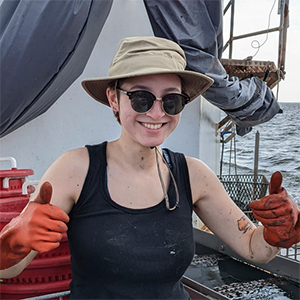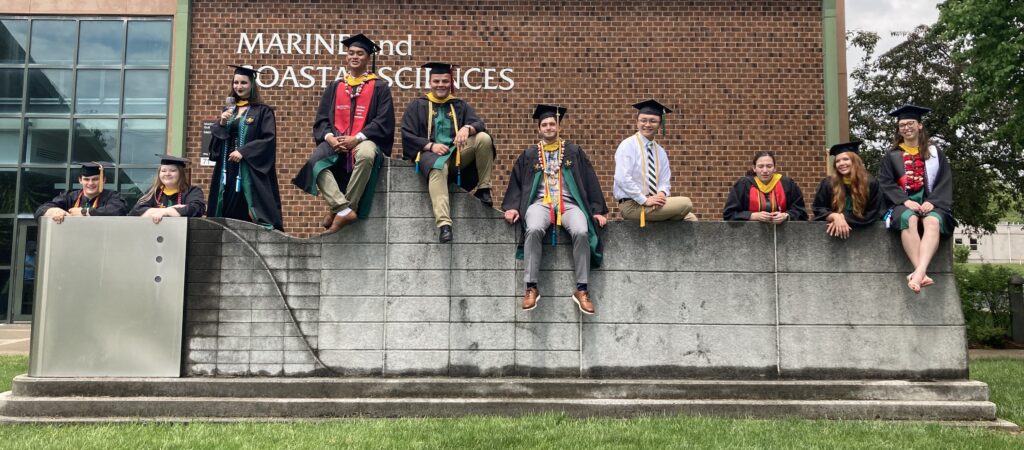
Why study Marine Sciences at Rutgers?
Faculty and students in the Department of Marine and Coastal Sciences (DMCS) are working all over the world, traveling from the tropical to the polar seas on scientific expeditions. Our undergraduate and graduate students are essential members of our research teams. We work in state-of-the-art laboratories, on vessels, and in classrooms to give students hands-on, experiential learning opportunities.
DMCS undergraduates made history in 2009 by piloting the first autonomous underwater robot across an ocean basin. From 2013 to 2017, our gliders circumnavigated the ocean basin – another first! We invite you to be a vital part of the collaborative group at DMCS, which has been an incubator for modern technology, scientific discovery, and sustainable practices for over a century.
Rutgers marine science education at a glance:
- Thomson Reuters ranked Rutgers University in 2011 as #4 in the world for the Top 30Research Institutions in Oceanography. College Values Online lists the Rutgers bachelor’s degree in Marine Science as one of the Top 20 Best Values for a degree in 2020.
- Our faculty and students regularly receive the highest awards and fellowships bestowed upon members of the marine science community. View some of our honors
- Rutgers undergrads conduct research with faculty on every continent across the globe. When students piloted the first underwater robot from New Jersey to Spain in 2009, both the White House and the government of Spain recognized this amazing accomplishment. Rutgers gliders circumnavigated the South Atlantic Ocean from South Africa to Brazil and back, and students have collected data on a glider’s journey through the Indian Ocean.
- Our research program generates tens of millions of dollars each year, and the knowledge gained from our studies helps grow the state and global economy. Faculty and students investigate water quality in New Jersey and develop methods for keeping local fisheries healthy, while building and improving aquaculture industries.
- Rutgers Marine Science students benefit from a new curriculum that can fast-track professional degrees and certificates. Students learn many valuable transferrable skills, such as critical thinking and problem solving, leadership and teamwork, oral and written communication, computing and data literacy. Our graduates move into challenging and diverse jobs in the private and government sectors immediately upon receiving their degree.
Testimonials
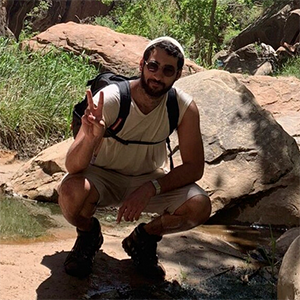
If you’ve ever watched Carl Sagan’s Cosmosseries, you’ll have an idea of what witnessing theTopicsinMarine Scienceclass was like. The first lectures consisted of visitingocean scientists and professionals just discussing what they study and why, with an open floor for questions. Eachpresentation was filled with passion and connected ocean science to every other discipline imaginable, challenging you to think like a scientist on a planetary scale. The last half of the course was on taking what we learned in terms of information and presentation to ask our own research question in groups and presentin front of our peers. The goal was to work as a group and emphasize the importance of science communication as well as the data itself.I took the course as a distraction from my pre-medical courses butfound it to be the course that gave me the most energy throughout my undergraduate years.
I can say without a doubt being a marine science major at Rutgers changed my life. Through my four years in the program,the community I built, the opportunities I was given, and the memories I have made are all something that leave me longing to have just one more semester at my second homewith my best friends. I have been able to travel to the Cayman Islands to study coral conservation, study the phytoplankton in Antarcticausing world class ocean tech, and look at zooplankton skeletons to track climate change through the millennia all while having my time cut short with a global pandemic, so just imagine the experiences one could build in a full in-person four years. With my Rutgers experiences, I was able to get a job as a lab tech before I graduated working in an animal electrophysiologicalneurobiology lab at Lehigh University and I am prepping to start a PhD program working in animal physiological ecology with a focus on climate change hopefully in the next year. If life doesn’t have too many more surprises, I plan to ultimately work as a marine ecology professor at auniversity likeRutgers to be able to provide future marine biology nerds a similar life changing undergraduate career likemine.
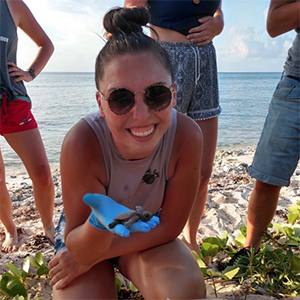

Unlike many other marine science students, I was fixed on a career in medicine prior to starting college, so I was looking for a different field of study that would let me broaden my horizons. I remember comingacross the Department of Marine and Coastal Sciences when I perusedthrough the list ofdepartments in SEBS tofind a major I was interested in. The first thing to catch my attention wasthe international research opportunities. I was already interested in doing research at the university level, but being able to travel and experience different countries and cultures at the same timewas the cherry on top. The small student to facultyratio of the department also impressed me, as I knew I would be getting personalized advisingand easy access to professors outside of class. On top of that, the department’s course offerings had great variety, and many courses integrated field experience into their curricula, which I thought provided a great way for students to practice what they learn.
Studying Marine Science at Rutgers has provided me with more hands-on experience and valuable scientific knowledge than I could have ever imagined. Not only did I meet enthusiastic and passionate students like myself, I was also fortunate enough to meet several professors that inspired me and guided me towards success. Although I transferred to Rutgers during a global pandemic, just one year at the Department of Marine and Coastal Sciences allowed me to get my hands dirty and become comfortable working with marine equipment. From collecting water samples on the Raritan bay, to running tests in the lab and analyzing our data, I truly believe Rutgers provided me with the skills necessary to let me excel in this field.
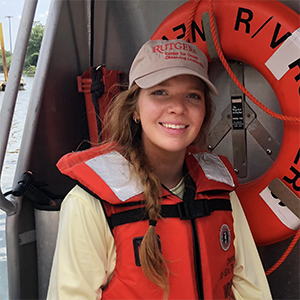
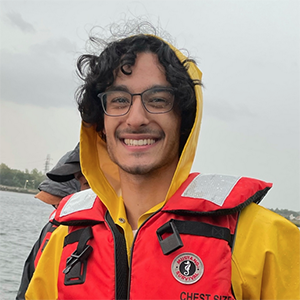
My name is Hossein Zolfaghari and I studied marine biology at Rutgers University, graduating inMay 2022. My experiences with my professors and fellow classmates in the Department ofMarine and Coastal Sciences were easily the most exciting and fulfilling opportunities I hadduring my undergraduate education. Our classes focused on the fundamentals of oceanographywith specific emphasis on why/how these concepts apply to our current environment and keygoals in the scientific community. This both made classes more interesting and prepared myclassmates and I to apply the concepts we learned to tangible scientific problems in the future.
While many people enter college with an undeclared major, I knew since high school that I wanted to major in marine biology. Coming into Rutgers, I was confident that I wanted to study shark conservation. My first two years here I was dead set on this goal, and looked into work studying fish. My spring of sophomore year I worked with a grad student, helping with her project on black sea bass energetics. This gave me the opportunity for research experience working in a lab. One of the great things about DMCS is that everyone is very friendly and eager to share their research, and it is very common for professors and grad students to be in need of an extra set of undergrad hands to help out in the lab. This makes getting relevant research experience a lot easier than in other fields, which ultimately sets you up for a more successful post-grad life. Junior year, I took the Hydrothermal Vents class with Dr. Richard Lutz, which sparked my interest in deep sea biology and ecology. I ended up graduating with the intent of seeking research opportunities on deep sea invertebrates and fish. The wide variety of electives provided through the marine science department gives students the chance to explore a huge diversity of different subsets of the field, which exposes us to so many opportunities we may not have even known we wanted. Currently, I work as a lab technician at one of the Rutgers off campus labs.
